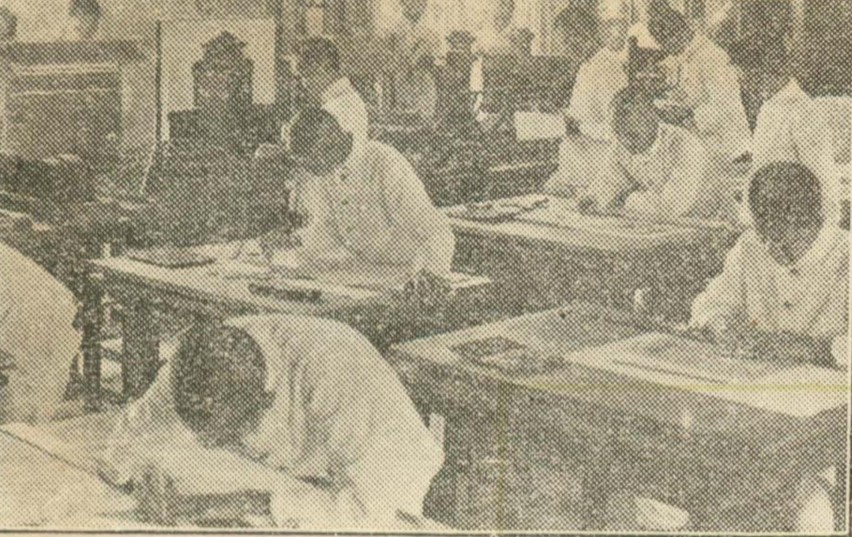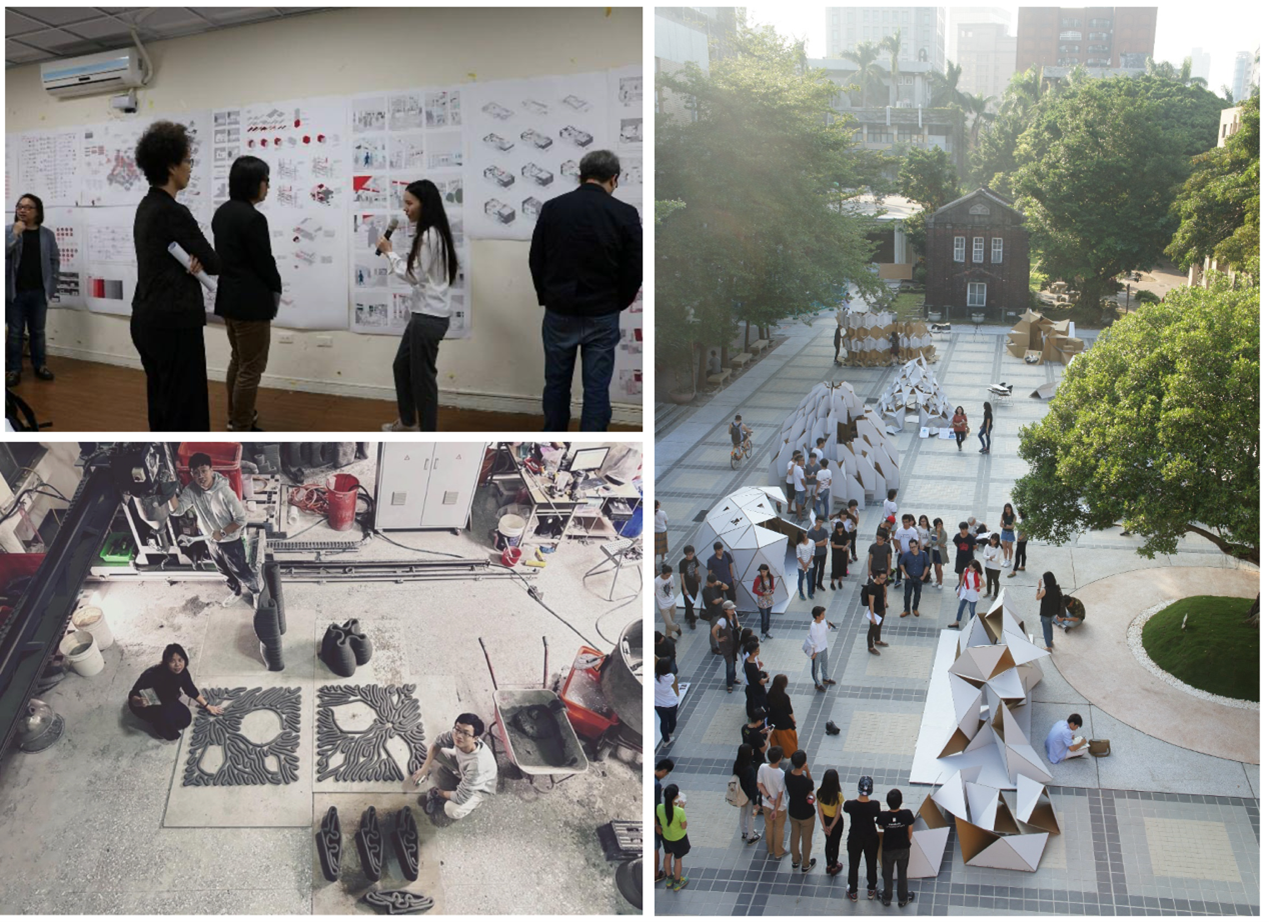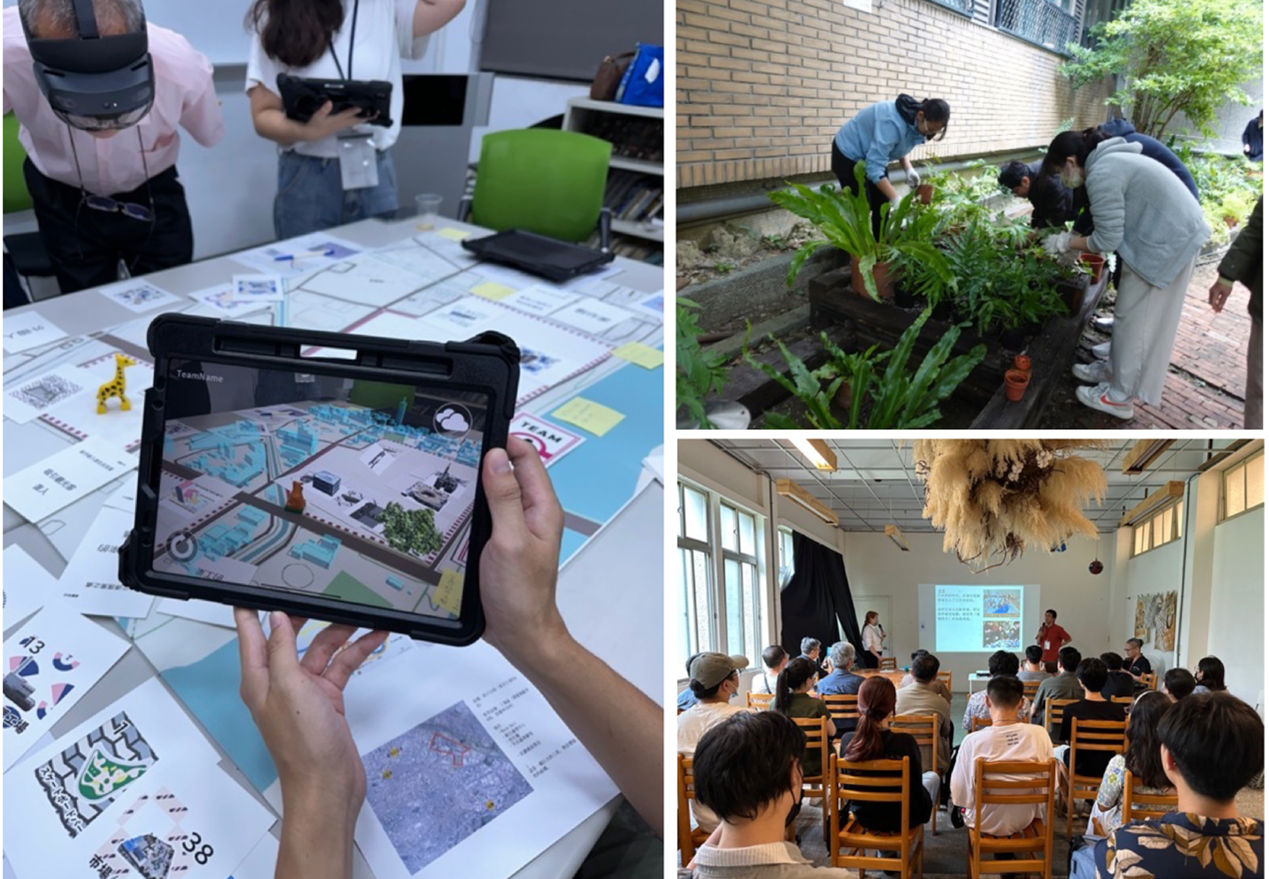Our History
The Department of Architecture at NTUT, founded in 1912, has evolved from Taiwan's first architecture program into a leading force in the built environment. Over the past century, we have cultivated countless professionals and laid a solid foundation for Taiwan’s architectural and construction industries.

We have continuously evolved and innovated through various periods of transformation. Following a brief integration with the Department of Civil Engineering and the Department of Industrial Design in 1963, we regained our independence as the Department of Architectural Design in 1987.
Affiliated with the College of Design at NTUT, Department of Architecture offers a comprehensive range of academic and practical programs, including a four-year undergraduate program, a master's program, a professional master's program, and PhD Program.
We uphold our core philosophy of hands-on, vocational education, cultivating professionals in planning and design who possess a unique blend of engineering expertise and aesthetic sensibility. Through our graduates, we continue to shape Taiwan's social and spatial development.

Our Future
As an urban university with strong industry connections, NTUT is a leading institution in Taiwan. In recent years, as environmental sustainability has gained prominence, there has been a growing focus on urban development, ecological preservation, and energy efficiency. Furthermore, the trends of globalization and internationalization have created a more open environment for Taiwan's higher vocational education.
In response to these global trends and as a member of the global community, Department of Architecture in NTUT integrates three core concepts: sustainable environment, design practice, and digital technology. We emphasize the principle of "learning by doing" through industry-academia collaboration and actively promote international exchange programs. Our goal is to cultivate the next generation of talented architectural professionals.

Our Focus
Our program is centered on the following key areas:
- Sustainable Environment: We focus on the sustainable development of healthy environments, urban renewal, cultural preservation, and community building.
- Interdisciplinary Integration: We incorporate expertise from urban planning, landscape architecture, ecology, and environmental studies.
- Core Architectural Design: Our curriculum is designed to integrate architectural theory with practical design skills.
- Engineering and Practice: We bring in industry professionals to teach, emphasizing hands-on construction, practical technology, and off-campus internships.
- Digital Technology: We train students in the application of digital tools, new media, and emerging technologies.
- International Exchange: We actively promote collaborations through international student programs, exchange students, visiting scholars, and transnational research projects.
- Career Readiness: Our goal is to equip students with problem-solving skills, professional knowledge, and technical abilities that dynamically meet the evolving needs of the industry.

